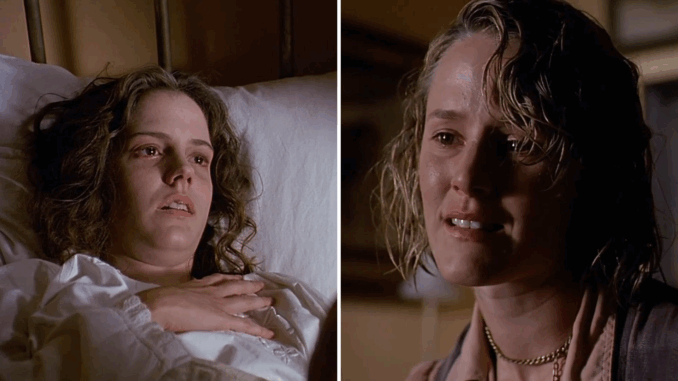
While Fried Green Tomatoes is often viewed through the lens of adult relationships — between women, lovers, and friends — there lies a quiet but profound presence in the background: children, and the way they inherit the legacies of those who come before them. In the margins of the film’s central stories, the younger generation reflects, absorbs, and reinterprets the values, traumas, and resilience of their elders.
This isn’t a story about children in the traditional sense, but when they do appear — especially through the figure of Buddy Jr. — their role is symbolic, emotional, and transformative.
Buddy Jr.: Innocence Amidst Complexity
Born into the chaos of Ruth’s escape from her abusive husband and the unconventional family she forms with Idgie, Buddy Jr. is a child who grows up surrounded not just by love, but by radical love — love that defies social norms, gender roles, and expectations.
As a boy raised in the Whistle Stop Café, Buddy Jr. is constantly surrounded by strong women, Black caregivers, working-class values, and unspoken truths. The café becomes a cradle of tolerance and resistance, teaching him more about community and humanity than any formal school ever could.
His childhood accident — losing an arm to a train — is more than just a plot point. It connects him symbolically to his namesake, Buddy Sr., Ruth’s brother-in-law who also died in a train accident. Both incidents bind the generations, as if the traumas and legacies of the past echo forward in literal and figurative scars.

Sipsey and Big George: Raising the Next Generation
Though often seen as secondary characters, Sipsey and Big George play a powerful parental role for Buddy Jr. and for the entire café “family.” Sipsey, especially, becomes a maternal figure of deep strength — nurturing, cooking, and fiercely protecting the people around her.
Their love is quiet, constant, and unwavering. In a world that gives them little recognition, they become the moral backbone of the next generation — teaching, by example, how to survive in a world that often refuses to see their worth.
When Sipsey takes the ultimate step to protect Ruth and Buddy Jr. — killing Frank Bennett with a cast-iron skillet — it’s not just an act of defense. It’s a declaration: This child’s future matters more than any man’s violence.
Evelyn and the Children She Never Had
Evelyn’s storyline is marked by a sense of maternal loss and longing. Her children are grown and distant. Her husband is emotionally unavailable. In a way, Evelyn represents a generation of women who were told their value lay in being mothers — but who were never given the space to be fully themselves.
As she bonds with Ninny and absorbs the story of Idgie and Ruth, Evelyn undergoes a kind of emotional rebirth. She doesn’t need a child to mother; she mothers herself. Her personal evolution becomes a message for the next generation of women: You are allowed to choose yourself.
Inheritance Without Bloodlines
One of the most beautiful aspects of Fried Green Tomatoes is that it explores nontraditional inheritance. Love, identity, and values are passed down not through genetics, but through storytelling, sacrifice, and care.
-
Ruth passes her gentleness to Buddy Jr.
-
Idgie passes her fire to Evelyn
-
Ninny passes her memory to everyone willing to listen
This is legacy not through blood, but through belonging. And it is just as real — maybe more so.
Raising the Future
In the end, Fried Green Tomatoes isn’t just a story about friendship or love. It’s a story about what we leave behind. Every meal served, every kindness offered, every story told — they all ripple forward into the future, shaping the world that the next generation will inherit.
The children in this film may not speak much, but they are always watching. And in their quiet presence lies the true power of the story: the hope that everything built with love and courage will outlast even the darkest days.
